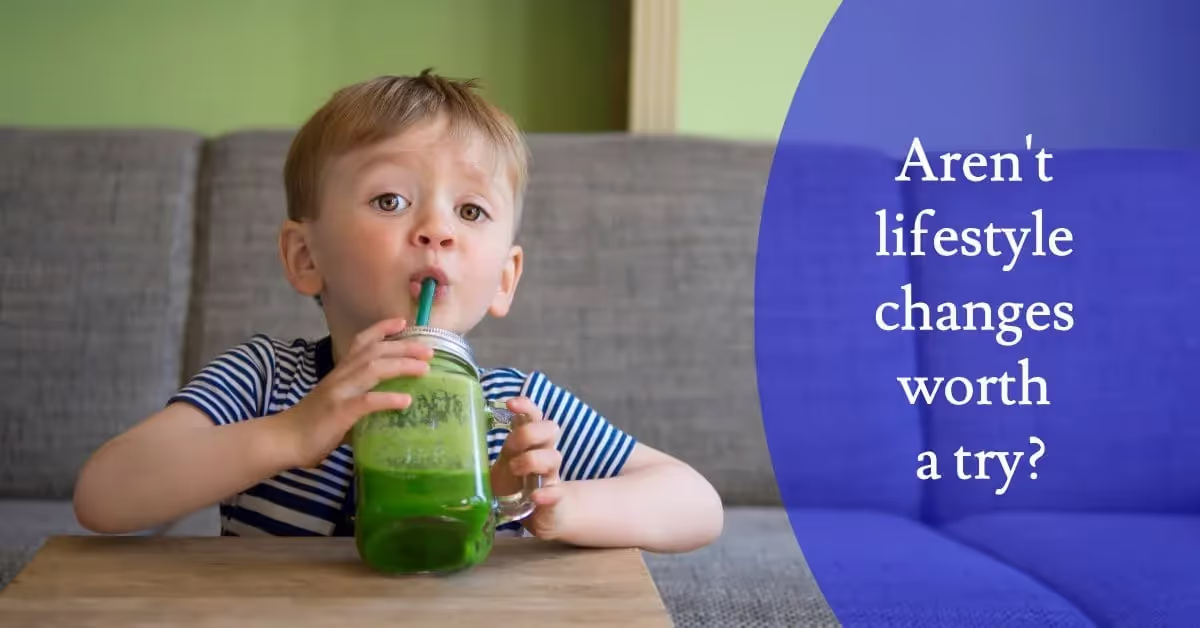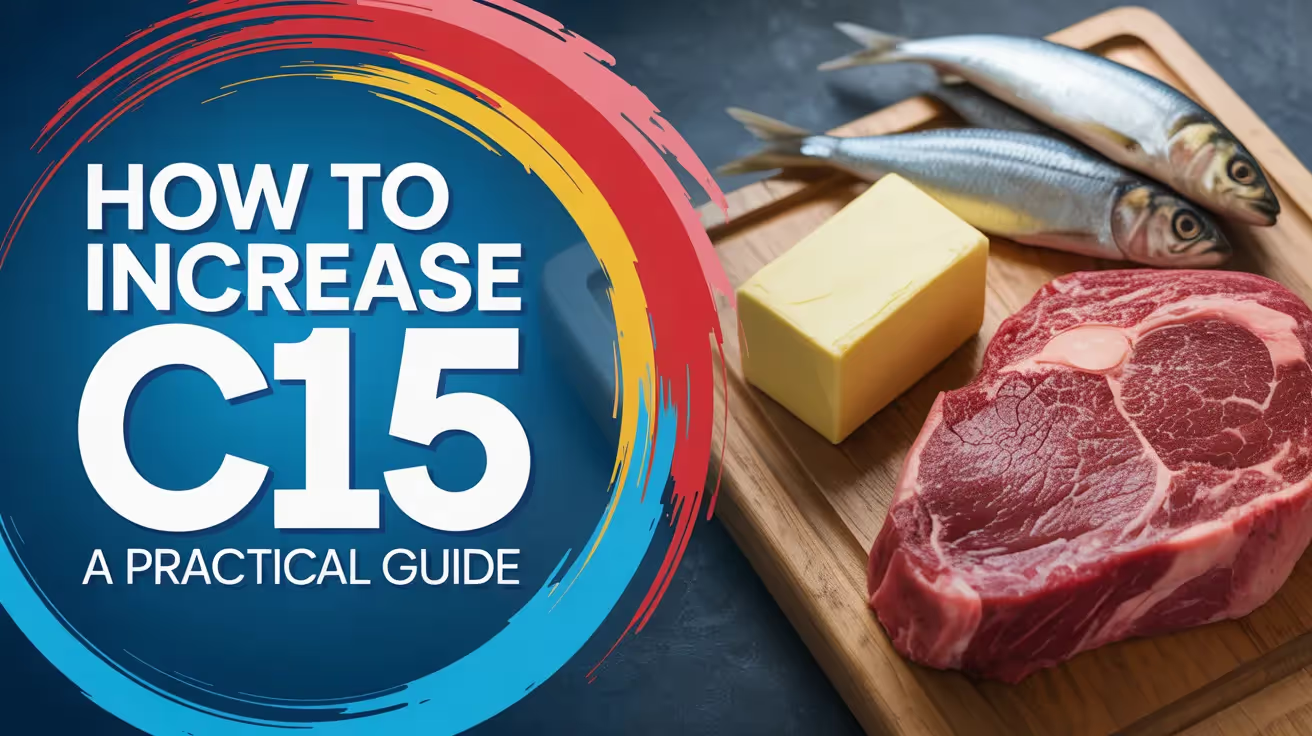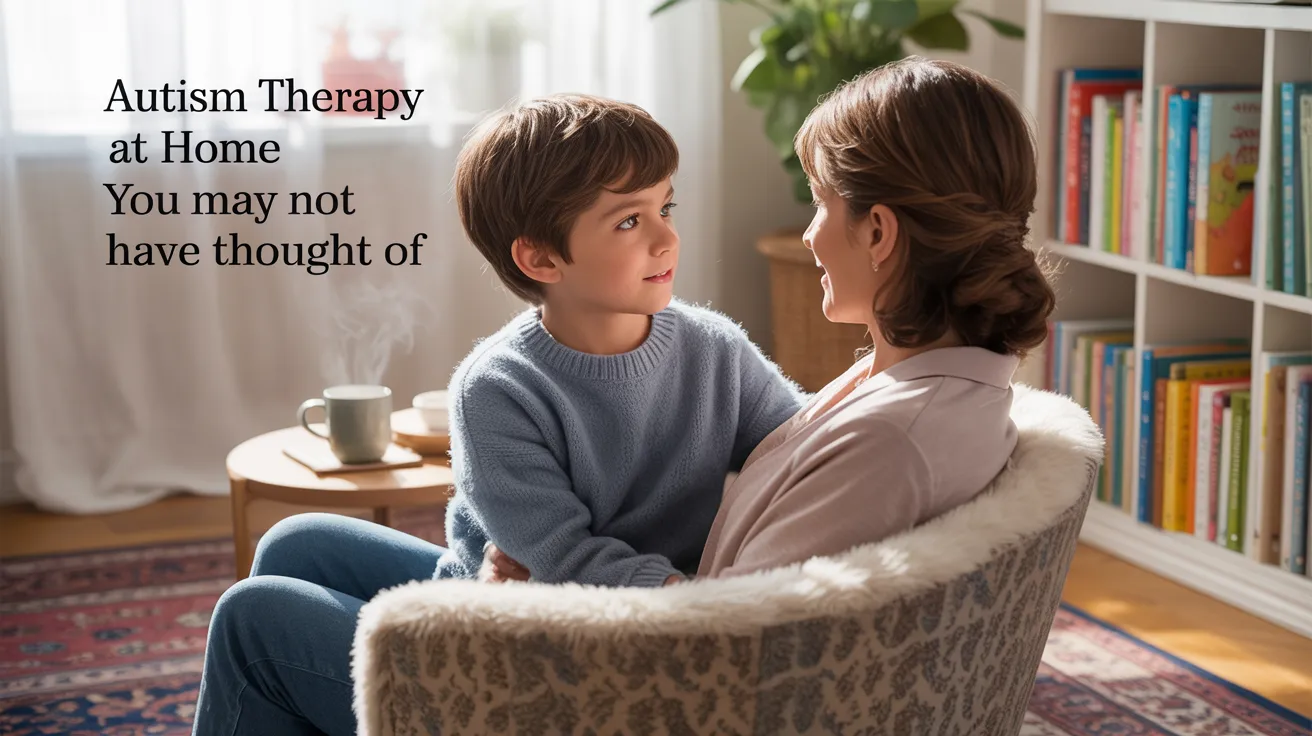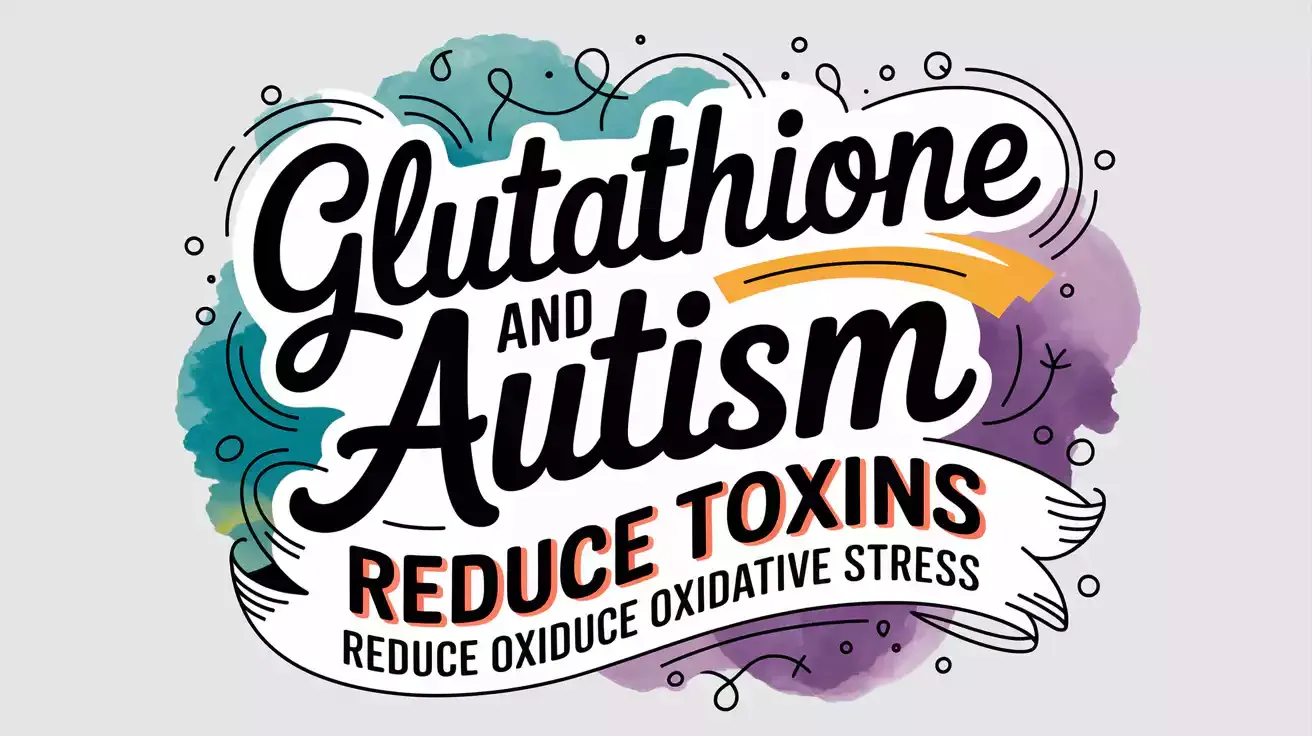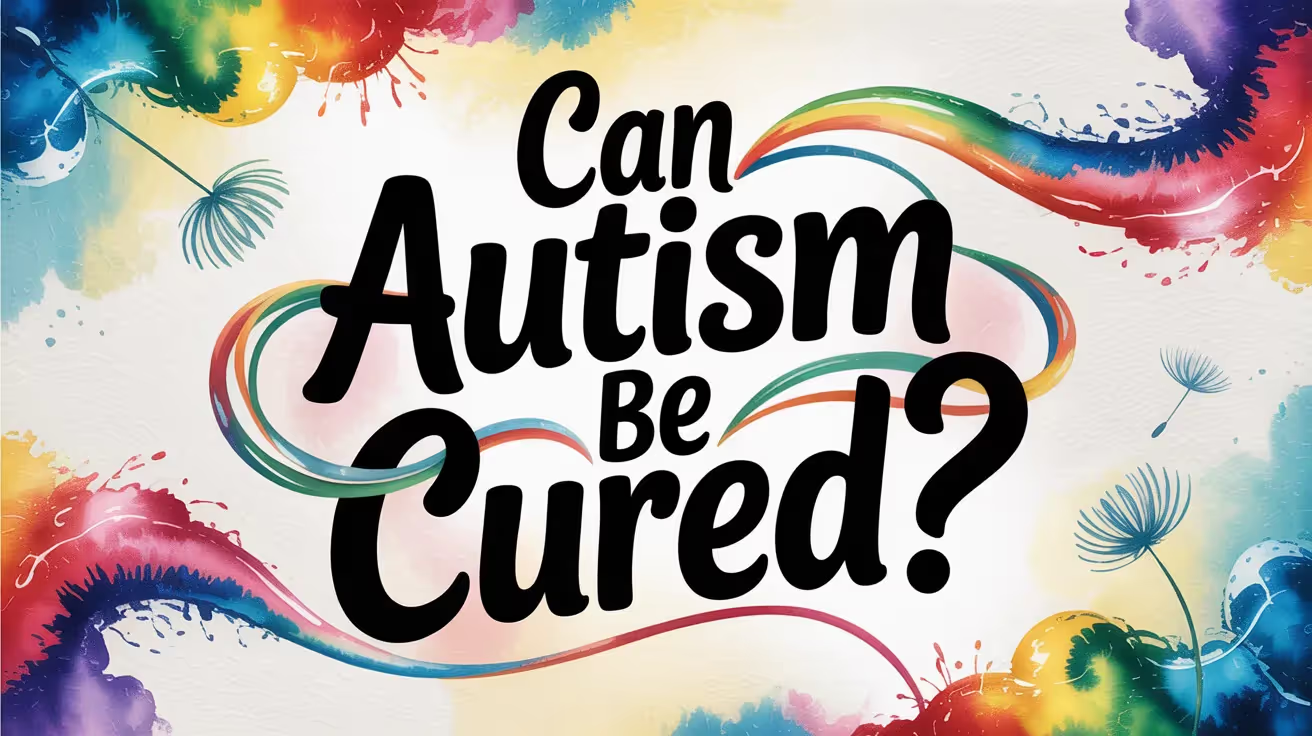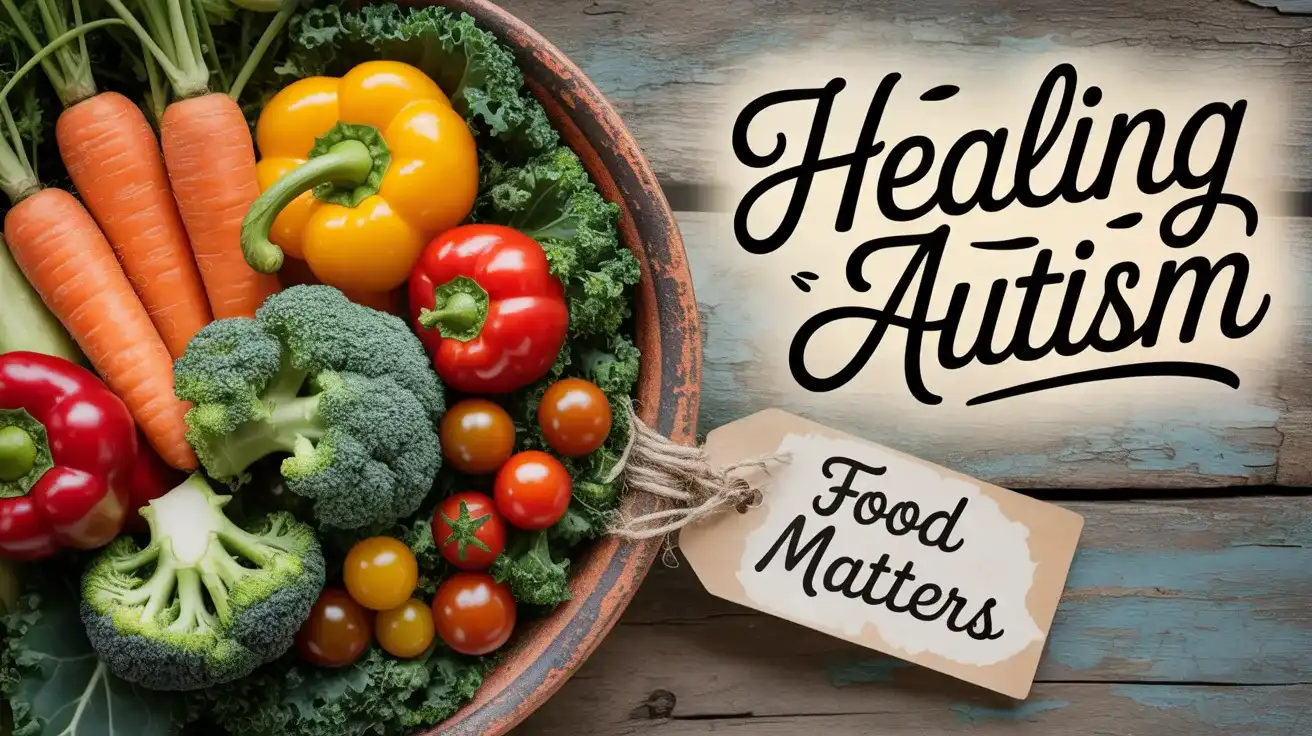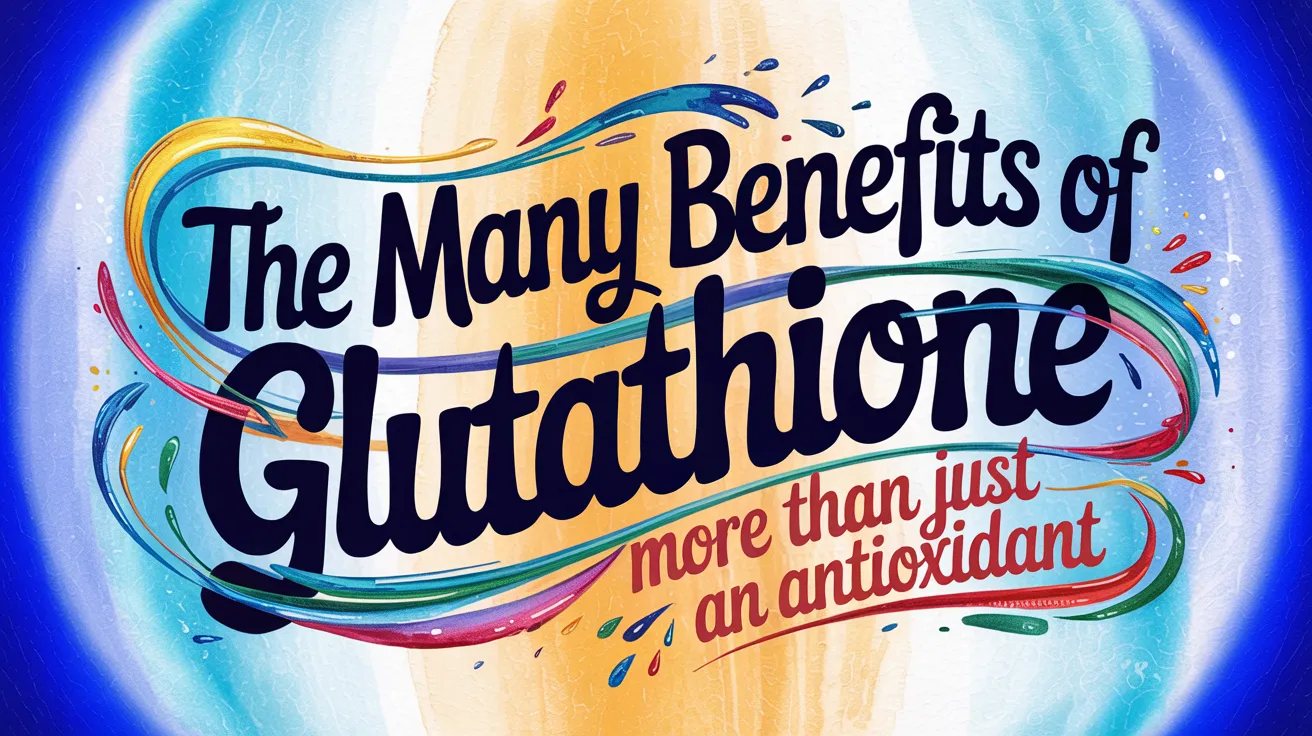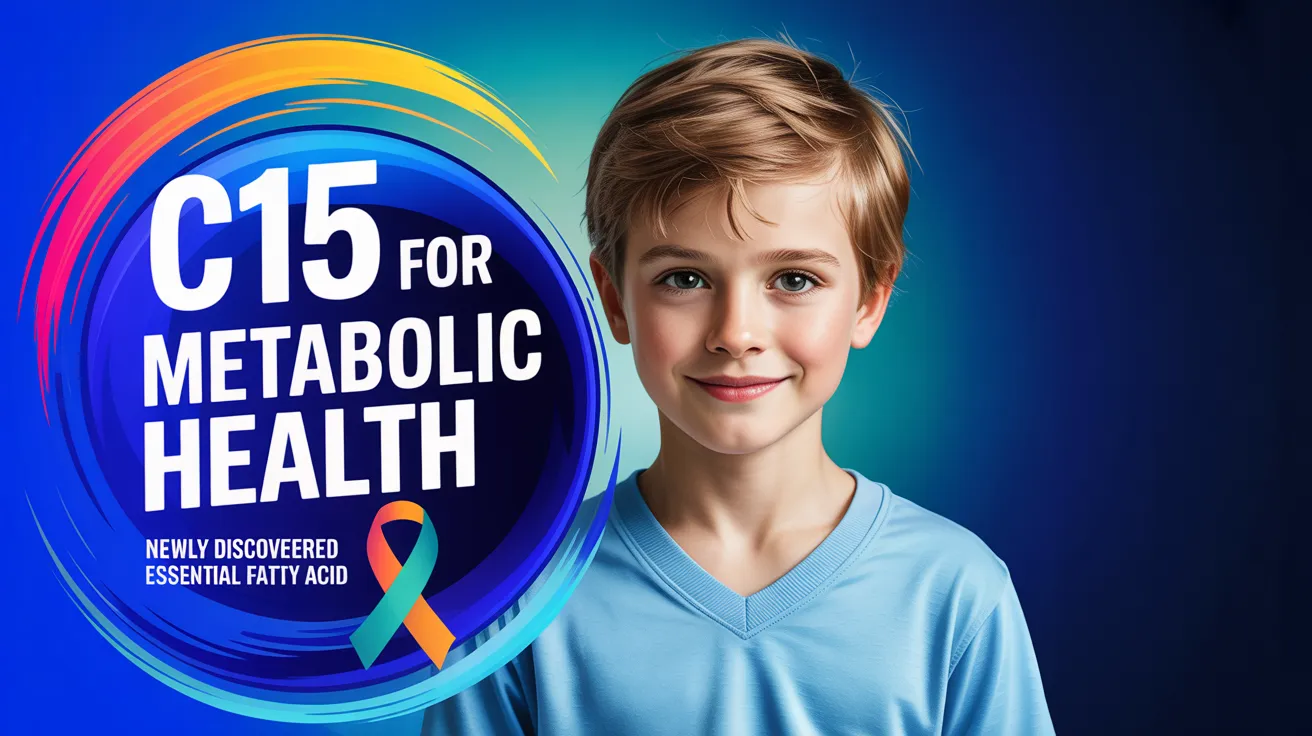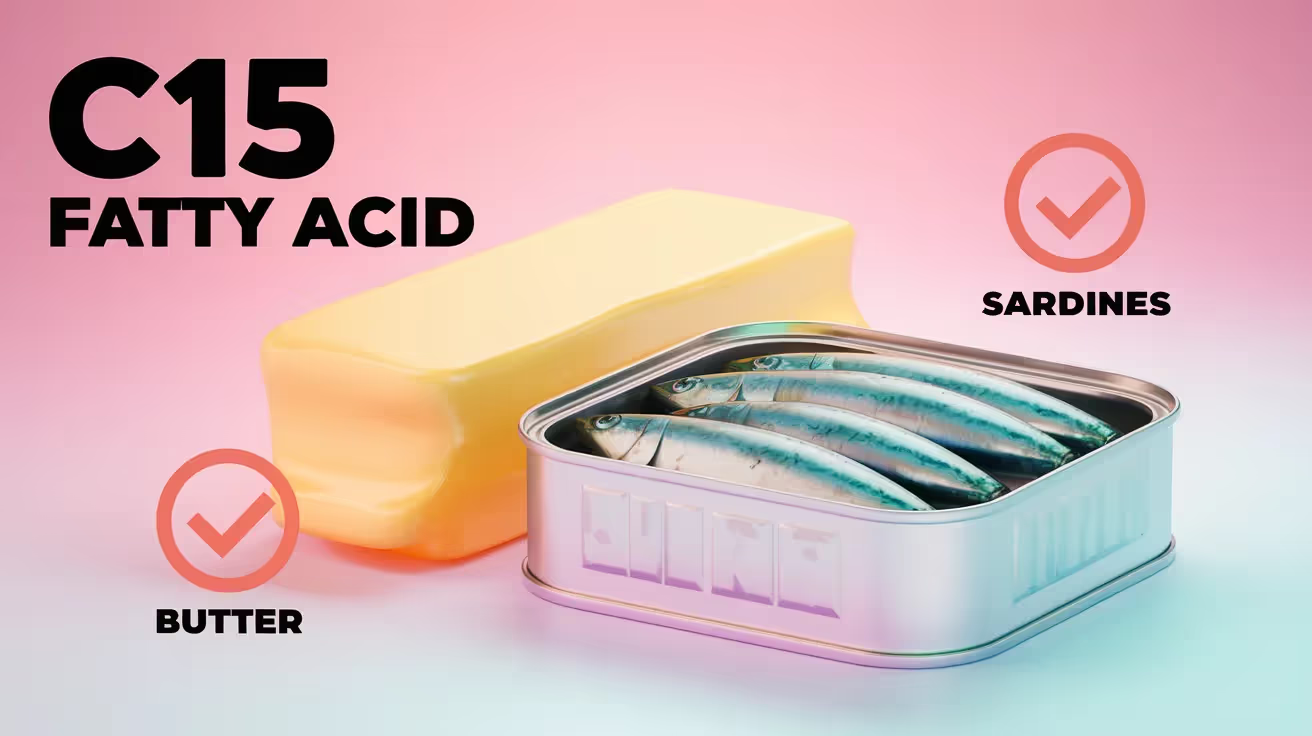* Disclaimer - This is an opinion only and should not be considered medical advice. Please consult a trained medical professional.
With increasing Autism rates and a clear decline with the health of our kids, a new approach to Autism is well overdue. As the world is becoming more aware of the importance of health for childhood development, parents are looking further than the standard approach of symptom management through behaviour therapy and medication.
As parents, we all want the best for our children, especially when it comes to their health. When we hear about parents reversing autism in their children, it makes us question the outdated thinking of the professionals who diagnosed our kids. We wonder if the same success could be enjoyed by our child.
Sadly, many doctors and health professionals think the best autism treatments are settled. But, as parents of a child on the spectrum, we often feel that pieces are missing. We can't just sit back and wait for the next big breakthrough from doctors and scientists. Our child needs help now!
As a result, we, as parents, are driving this new revolution and exploration into how we can help our children with autism. We don't want to wonder if there is more we can do. We'd rather take action with some simple diet and lifestyle changes, as long as there is no risk of harm. Autism treatment should include diet changes, specific therapies, and lifestyle choices. The choices should be made after asking the parents, healthcare providers, experienced families, and autism coaches.
Your child should be able to lead an active life. He or she should be able to enjoy social interactions and participate in activities that interest him or her. A healthy diet is key to helping your child achieve these goals. As a parent, you need to know what foods to avoid and what foods to include in your child's diet.
You should also understand how to prepare meals so that your child has access to nutritious foods. Finally, you must learn how to manage stress and deal with challenging behaviours. These skills will help you cope with any difficulties your child might face.
More and more people are realising that we can do more to support people with autism and ADHD. People are looking for ways to treat autism and ADHD naturally. Parents who suspect their child might have ASD or ADHD are becoming increasingly aware of the things that make the symptoms get better or worse.
Furthermore, parents hope that natural remedies can help their children. We are encouraged to look for new ways to help their children's recovery from autism symptoms.
When it comes to diet and supplements, cost-effective strategies that work are the goal. Instead of buying expensive miracle supplements, it's better to choose a healthy lifestyle. This lifestyle involves eating nutritious food and using few supplements.
We can use diet, lifestyle, and targeted supplements to address key areas. These areas include gut health and mitochondrial health, and reducing inflammation. Many people have had success with various energy healing methods.
This post is for parents looking for ways of helping their autistic child beyond the standard therapies. I encourage all of us to take a step back and look at Autism Spectrum Disorder (ASD) with fresh eyes. I don't intend to cover in detail the most established and used strategies and early interventions for Autism. I intend to expand on those early intervention strategies and explore those additional and new ideas that can be added to our strategies. These new ideas will enhance the effectiveness of those more common early interventions.
If you're seeking ways to improve your child's well-being, engagement, and overall mood, you've come to the right place. You may have a long list of wishes for your child including things like having your child become verbal, him saying 'I love you mum' or him having friends.
You want to know how and why these ideas work and what will work best for your child. That's why I'm writing this post. This post is about helping your child be healthy. This will help them get the most from early treatments and have more fun.
Many of us believe that we know a lot about autism, but do we? We may know how to describe autism to someone by repeating what we are told the outward symptoms are. However, do we really know what autism is? When we peel away the superficial layer, we get a different answer to the question, what is autism?
Can You Be Cured Of Autism?
Many parents want ot know if autism can be cured. So can autism be cured?
This question of whether you can be cured of Autism doesn't serve a purpose, except to stimulate debate and cause arguments. It distracts people from the important things, such as helping our children be healthy and happy.
In our modern world, to cure something, there must be a diagnosable condition. There must also be clear tests showing that the condition is gone. When the diagnosis has areas of grey, this can leave areas of debate and argument.
If something can be cured, it implies that it's a disease. Autism is not a disease, so there is no cure. Everyone is different. I have felt different to others all of my life. So have many others. Differences should be encouraged. Many of our children with autism spectrum disorder are put in that basket because they simply see the world differently. They have different strengths and weaknesses. The interesting thing is that their strengths tend to be rare strengths. They're strengths that the world needs.
Another reason that I don't like the focus on curing Autism, is the system of healthcare that exists in the western world. Something can only be called a cure, if it's registered by the organisation that regulates medicines in that country. To be registered, the medicine needs to go through a long and expensive clinical trial process (unless in a pandemic). This means the medicine needs to have potential for the generation of large amounts of money for the manufacturer. In short, the system makes it impossible for many strategies that promote overall health to be considered a cure or even a treatment.
For all of the above reasons, natural cures for autism don't exist, but that should not stop us looking for ways to help our children. Curing autism is a deeper topic than I've covered here. For more on the topic of curing autism, visit our new post titled "Can You Be Cured Of Autism?"
So There's No Cure For Autism, So Should I Just Accept It?
With an emerging group of parents like us entering the world of Autism, we are starting to change the way Autism is approached. We are starting to think about it in a whole new way. We're no longer viewing Autism as a disability and instead view it as an opportunity to learn and grow. We stop seeing it as a problem and instead see it as an opportunity to raise healthy and happy kids with unique and important skills.
Parents are now encouraging the wonderful traits that our autistic children have. They seize the opportunity to help them grow and develop. They do this by using the extra insight they've gained from being an autism parent. We don't use autism as an excuse to be lazy, as an excuse to condone abusive behaviour. We don't use autism as an excuse to avoid responsibility. Abusive behaviour may happen, but we support our children through it and help them grow beyond those behaviours. There is always a reason for each behaviour and with the support and experience of the autism community, we can uncover it together.
Every family, every parent and child has their own life to live. Some parents enjoy the incredible compassion they receive for others. They receive compassion from those who admire their strength as an autism parent. They share stories of their struggles while others congratulate them for doing so well. It takes a special parent to keep it together when affected by Autism and a supportive group of friends makes an impressive difference. They may not have an interest in exploring health-related strategies.
Some parents may have been told by people they hold in high regard that they would be wasting their time if they explored health strategies. Day-to-day life is challenging enough. It's hard without having to learn if better health can help their child. Even if they see enough evidence that it may help autism, where do they start? Doctors practising integrative health are few and far between. Finding one that specialises in Autism is even harder.
Every family and every situation is different. Our experience with our son with Autism is that health strategies make a huge difference. Exploring ways to improve his health has had the most significant impact on his life than any other strategy. It introduced new sets of challenges, particularly because it was 2013 when we started our journey. In 2013, even suggesting that improving health could help autism was a ticket to be scorned by others.
If I was a parent of an aspiring Olympian, I'd be praised for cooking all meals from scratch, high in nutrients and low in inflammatory foods. Why is it different for autism?
Even today (in 2022), some of us experience negativity from others when we talk about how we promote health for our children on the autism spectrum. We should be proud of ourselves if we do the right things for our children. We shouldn't be ashamed of trying to help them live better lives. If I was a parent of an aspiring Olympian, I'd be praised for cooking all meals from scratch, high in nutrients and low in inflammatory foods. I would be praised for driving my child to training, events and even additional therapies to give them an edge. Unfortunately, doing the same for a child on the Autism Spectrum can be met with negativity.
I have to be honest. If the 2013 me met my 2022 self and got the steps I took to get here, I can't be sure I would have had the strength to do it. It took a lot of time and effort, very little sleep and an emotional toll.
My 2013 self didn't have the energy that I have now, or the knowledge. I didn't know for sure that we could make such a profound difference to our son. The experts helping us at the time set our expectations very low, but as we saw improvements, our motivation grew. We developed a belief that we could help our son have no limitations set by autism. As an added benefit, the change in diet that our family was enjoying improved our health and energy significantly. That enabled us to more easily explore more ways to help our son's recovery.
I now know, that it could have been much easier. It wasn't easy, because we were learning as we went along. Some things worked, while others didn't. We spent a lot of money trying, failing and succeeding. In this post, I want to give enough information to help you greatly help your child, yourself, and your family. It will save time, effort, and money.
Can We Heal Autism Naturally?
Ignoring the power of improving the health of our children is a mistake. Improving our families health has a significant effect on our mental health, cognition, happiness, and physical performance.
Autism is no different. In most cases, Autism is diagnosed without any medical diagnosis, such as blood tests and brain scans. It's diagnosed based on a set of criteria observed by experts in our children. This means that any assumptions about the cause is a guess.
We can choose to guess that it's a permanent brain structural or wiring issue, without any confirmatory tests, or we can assume it's related to health. Those of us that assumed improving health can help are glad we did. It changed our son's life.
The cases are no longer a few isolated cases, the numbers are growing, indicating that we can heal autism naturally.
There are important factors in healing people with autism, including reducing toxins, reducing inflammation, and improving mitochondrial health (the powerhouses of a cell).
The Symptoms Of Autism
You've read this far, so you probably realise that this post is not about the standard way of thinking about autism. As such, this post doesn't list or discuss the standard list of autism symptoms. If you want to delve more deeply into the symptoms (with a Natural Autism Support slant), please read this post - Symptoms of Autism.
Parents have been encouraged to look for the behavioural symptoms of autism. These symptoms are used in the diagnostic process to assess social interaction. We have traditionally ignored the symptoms listed below. Some doctors even dismiss them as not relevant to autism. The thinking around these symptoms is that we are looking for health-related symptoms that can be helped with diet. These symptoms are closer to the root of the autism symptom tree. They affect the more obvious symptoms that are used for autism diagnosis. The good news is, that by addressing these core symptoms, large improvements can be realised.
A good deal of health related symptoms are difficult to see, without diagnostic tests. I am listing the symptoms below. They are more common in autistic children than in neurotypical children. The symptoms are split into 2 important groups, gut related and inflammation related symptoms. This helps parents devise the most effective strategy to help their children.
Here are some gut related symptoms
Diarrhoea
Constipation of less regular bowel movements
Gut pain
Here are some inflammation and oxidative stress related symptoms.
Puffy eyes
skin rashes
Headaches
Fatigue
high blood inflammation markers such as CRP or HS-CRP
Research into autism shows that many children on the spectrum have gut related and inflammation-related issues. Parents that address these symptom areas often see quick improvements in their children.
Another symptom of autism that is often overlooked is persistent toe walking. A normal part of development is for a child to walk on tippy toes during their learning and development phase. If toe walking continues after the age of two and a half years, it's worth seeing this as something that could be helped. There are medical reasons that can cause this, however, I recommend exploring treatments to integrate primitive reflexes. If you are concerned about toe walking for your child, you can read more in this post covering some reasons for persistent toe walking as well as some strategies to explore.
Finding an integrative health practitioner specialising in functional medicine that understands these topics is a wise idea. They can devise targeted strategies based on skilful observation and testing. For many parents, it's difficult to find and afford this approach. In this case, parents typically decide to get started with diet and basic supplementation. Getting started prior to seeing an integrative health practitioner can be a good idea, because a good practitioner is likely to suggest this anyway, before they devise a more individualised strategy.
Inflammation And The Brain
Autism is considered to be a disorder of brain development. Diagnosis of autism assumes brain damage, yet no diagnostic imaging is performed. Although diagnostic imaging is not routinely used in the diagnosis of ASD, research shows that people with ASD tend to have higher levels of brain inflammation compared to neurotypical people.
Despite the links between brain inflammation and autism, inflammation is rarely discussed in the treatment of autism. In my experience, when talking about the brain of a child on the spectrum, the brain differences are thought to be permanent structural differences from birth. In other words, the brain developed differently before the child was born. The structural differences may be there is some people with Autism, but it's wrong to assume that it's the case for everyone. It's my view that most of the children being diagnosed with ASD today do not have permanent structural defects in the brain.
Assumptions that aren't true, can significantly impact outcomes negatively. If the major cause of Autism today is inflammation, we should be addressing it. If we are going to assume anything, why not assume that inflammation is a major cause of Autism, rather than assuming permanent structural changes in the brain from birth. If we don't want to assume, we can confirm with testing. Why aren't we testing for inflammation if it's so heavily correlated with autism?
I want you to imagine a day when you have had too much alcohol to drink the night before, or you've binged on unhealthy food, but you have to go to work. You are noise sensitive, irritable, and you want to resort to simple tasks and be in your own bubble. This is how many autistic children feel every day. Sensory issues and even repetitive behaviours can be signs that our child is chronically inflamed. It may be that their nervous system is not functioning in a balanced way.
Another interesting set of observations about brain inflammation is its correlation with anxiety and depression. Various strategies to reduce inflammation have been used to reduce the symptoms of anxiety and depression. So much so that scientific evidence indicates that reducing inflammation can have a more positive effect than standard medicines that treat anxiety and depression.
Since anxiety and depression can go with ASD, it's intriguing that there may be common contributing factors. Noticing these correlations stimulates curiosity about the potential benefits of improving health, and the immune system to encourage normal inflammatory pathways.
Peeling The Onion
Many parents new to the world of Autism can objectively look with fresh eyes. This can be an advantage over those that think they know a lot about autism. Remembering the teachings in text book may pass the exams and get you a job, but when it's your own child, your goals are different from if it's your job.
Parents need to shift their thinking a little. Rather than putting your trust in others while ignoring your own knowing, you need to trust yourself and take the lead. The professionals we use to help us are not there to take the lead, they are there to help with specific symptoms that are within their expertise.
Parents know their own children better than anyone. Parents often know what's working and what's not working. They understand their children's strengths and weaknesses.
As you continue to help your child, their strengths and weaknesses change. Overcoming what you think are the most important challenges exposes some new challenges. We tend to help with the things that we can see and that are more obvious. In autism, it's common to start with behavioural interventions. These are to remove the traits that embarrass us as parents. That's what some autism treatments focus on. The focus is on behaving 'correctly'.
Once we've addressed the obvious layer of the onion, we expose a new layer. Now the focus has changed. Peeling off layers and exposing new layers feels like it never ends.
What if you could work from the centre of the onion at the same time as working on the outer layer? The centre of the onion can be thought of as health-related issues, such as inflammation and gut health.
Mitochondria are a great example. There are many mitochondria in each cell, so if you knew how to enhance mitochondria, you would enhance every cell, which would greatly improve our health.
Addressing fundamental aspects of the body affects every cell, which helps the body as a whole. Working on the centre of the onion may make the process of peeling the onion layers easier.
Now that we've explored some basics, let's move on to the question - how to cure autism at home? We'll now explore if there is, or ever can be, a cure for autism. Once we've done that, I'll go over some important and easy steps to recover from autism naturally.
How To Cure Autism At Home
Firstly, it's important to mention that I don't like the term cure, particularly for children with autism spectrum disorders. I explain this in more detail in this post, however, in short, there is nothing to cure with autism. It's more about helping people with a diagnosis have better lives, through being helped with certain things they are having trouble with. Can Autistic Children really be cured of having weak social skills, for example? You can get help to learn and improve your social interactions.
Most of the help you will get for your child on the spectrum will come from the home. You won't find a miracle expert on autism that will do it all for you. You will, however, find experts that make it easier for you to more effectively help your child in the home.
If you're not implementing diet and lifestyle changes in the home, you're not going to see profound changes with your child on the autism spectrum. To put it simply, even if you believe that autism is a curable disease, to cure autism, you need to improve health.
I'm sure that since autism entered your life, your life has changed. It will continue to change. You may have introduced some daily exercises, dietary changes, ABA homework, changes to your home to accommodate sensory needs etc. These changes to your daily routine will induce lifelong changes and improvements.
I am a strong believer in dietary changes because I have experienced it for myself, and seen the impact in my child with autism. Changing your family's diet to remove foods that cause inflammation and replace them with foods that are nutritious and heal the gut and the body. Helping your child to be healthier will improve every other therapy and strategy that you use. You will be a believer for two reasons - when you experience for yourself and when you see your children thrive.
4 Ways To Naturally Heal Children With Autism At Home
We looked far and wide for a way to reverse autism that we could apply at home. Looking back, we did it the hard way. If we knew then what we know now, we would have found it much easier and saved many thousands of dollars. My goal here is to help you find simple, cost-effective and highly impactful health strategies to get started. The focus is about healing the body naturally by providing what the body needs to heal.
The key to improving health in general is to improve the body's ability to detoxify, manage inflammation, and reduce oxidative stress.
It's interesting to me how often people want to know how to cure autism fast. As already mentioned, there is nothing to cure with autism. We can, however, do things to help our kids be healthier and happier, which significantly improves their development.
In my view, to get better results faster, you must improve your child's health.
The list of 4 is not an exhaustive list, but instead is a list of 4 really important and often overlooked strategies. These aren't treatments for autism, however, I'm offering them as options to improve the health and wellbeing of children on the spectrum. It's important to improve health and wellbeing, so the children feel better and get more out of therapies. These aren't to replace the other essential strategies that you have and have had recommended to you by the experts in ASD. These may be used alongside your other strategies, including physical therapy and conventional/herbal medicine.
1. Glutathione (but one that can absorb into the body and cells).
I've included this first because people love supplements that actually improve health. I maintain the belief that a quality diet is the most important strategy, to work alongside autism therapies, but this supplement is very likely to make things much easier. Getting the master antioxidant in a form that actually absorbs into the body helps to get health back on track. It can be a powerful way to remove toxins from the body as well as reduce oxidative stress.
To take a deeper dive into glutathione, read my dedicated post about glutathione and autism.
Glutathione is essential for life. It's used to reduce oxidative stress, activate red blood cells for oxygen delivery to cells, assist with many biological functions, and reduce toxins in the body. There are numerous noticeable positive effects of increasing glutathione in our body and cells. Improvements in health can be noticed visually, by improvements in numerous health markers, and in how we feel.
There are ways to increase glutathione with food and a handful of supplements, but they don't work as well as Neumi Swish. On top of that, it's easier to use for kids. It's just a matter of swishing a liquid in the mouth, then swallowing. No need to be taken as a tablet. It's powerful, yet gentle and produces the most noticeable effect of the hundreds of supplements we've tried.
We tried many other forms of Glutathione, however, this new unique nanotechnology that optimises absorption and efficacy and delivers Glutathione to the body more potently than ever before. Prior to this technology, expensive and time-consuming IV glutathione therapy was needed. However, IV glutathione doesn't enter the cell as easily as Neumi Swish.
It's worth considering getting some to try, even if you use it less regularly than recommended. The glutathione can still increase over time by using small amounts of this form of glutathione.
Here is the link to learn more about the Neumi Swish product.
2. Remove food that causes inflammation.
It's critical as a first step to remove foods that are causing inflammation. Some people don't like the thought of special diets, but other strategies to reduce inflammation will be less successful if food is causing inflammation.
The first diet strategy that we tried was eliminating gluten and dairy. Our son improved noticeably in a couple of weeks after eliminating these foods. We got a lot of hope and confidence from doing this. Our whole family now eats a gluten-free diet. From my own experience, a gluten-free diet has made a huge impact on how well I feel. Many families of children with autism have done this with great results.
There are many doctors and naturopaths that can test for foods that cause inflammation. An alternative method is the use of an elimination diet, whereby foods that commonly cause inflammation are removed for three months, and symptoms are monitored. Foods are then re-introduced one by one to check for signs of inflammation such as puffiness, skin rashes, and other autism symptoms getting worse.
Once you have determined the foods that are causing inflammation, avoid these foods.
Some common foods that cause inflammation are:
Gluten (usually from bread, pasta, and other wheat products)
Milk and dairy products
Sugar
Eggs
Nuts
3. Add quality nutrient-dense foods to improve overall health.
Often we eat to fill up and to fill our calorie quota. There has been a focus on calories rather than nutrients. To promote health, the focus needs to be on nutrients. Nutrients are to provide cells with what they need to perform well and to provide the good bacteria in the gut what they need to help the body thrive.
As a general rule, the best way to improve nutrient density is to prepare and cook the food yourself. Foods should be as fresh as possible and include a lot of colourful vegetables. Meat should be grass fed and finished.
Quality fats and fatty acids should be included in the diet. Contrary to popular belief, stable fats with a higher proportion of saturated fat or monounsaturated fats are healthier for the body and brain. These include animal fats from grass-fed animals, coconut oil (including MCT oil), avocado oil, and olive oil. Avoid frying the foods in oils, as high temperatures can damage fats. Stable, high-quality omega 3 oils have also helped children with autism.
For more information on foods to add and foods to remove, I recommend downloading the Bulletproof Diet Roadmap.
4. ION supplement (formerly Restore) for gut health.
Gut health is very important for everyone, and improving gut health of your child can help your child. Digestive disorders are common with children on the spectrum. We have more posts that go into detail about gut health and probiotics for autism, however, people want to know what supplement to provide their child to heal their gut quickly. For this, I recommend the Ion supplement.
Ion helps to restore a beneficial environment in a person's gut, beyond probiotics and prebiotics. Ion can help seal the gut lining, reducing or eliminating leaky gut and all the symptoms leaky gut causes. In combination with improved diet, Ion can speed up your child's gut healing.
Here is the link to the ION supplement from the iHerb Store.
Summary
Consider trying the 4 most important and often overlooked strategies to help improve the health of your child with Autism. Reducing inflammation and improving the health of your child can greatly improve how well they respond to conventional treatment. Once your child is healthy, you are in a good place to explore more targeted (and costly) therapies advised by an integrative health doctor if you decide to do so.
Exploring health-promoting ideas at any time is a great idea, but it can have a significant impact when your child is a toddler. The earlier you start improving your child's health and building new habits, the easier it will be for your child. It's interesting to observe that often autism is mild in toddlers, then symptoms can worsen as the child approaches school age. What do you have to lose in trying to develop healthy habits? Even if it improves how they feel and their happiness, it's worth it.
For a wider and more comprehensive blog post about the various home therapies for autism, please read the following article - Autism Therapy at Home. This article contains some ideas that you probably haven't thought of.
Hiring an autism life coach is the best way to be guided by someone that has already walked the path. Someone that has already healed their child with autism and reduced the autism symptoms in their child can help you and your family navigate the challenges of autism.
Frequently Asked Questions
What does 'reversing autism' really mean, and is it possible to improve health naturally without medical intervention?
It's important to clarify that autism spectrum disorder (ASD) is a neurodevelopmental condition that is generally considered lifelong. However, many caregivers and individuals seek ways to improve overall health, reduce symptoms, and enhance quality of life through natural approaches. When people talk about 'reversing autism,' they often mean improving behavioral, cognitive, and physical health to foster better functioning. While there's no scientifically proven cure for autism, many natural strategies—such as optimal nutrition, environmental modifications, and holistic therapies—can support brain and body health. These approaches might help reduce certain challenges and promote overall well-being, but they should complement, not replace, professional medical guidance.
What are some evidence-based natural methods to support brain health and physical well-being in individuals with autism?
Several natural strategies have shown promise in supporting brain and body health in people with autism, including:
- Optimal Nutrition: Ensuring a balanced diet rich in essential fatty acids (like omega-3s), vitamins, and minerals can support brain function. Some children benefit from specialized diets such as gluten-free or casein-free diets, but always consult a healthcare professional before making significant changes.
- Environmental Toxin Reduction: Minimizing exposure to environmental toxins (like pesticides, heavy metals, and household chemicals) may reduce stress on the body's detox systems and improve overall health.
- Gut Health Support: Since many individuals with autism experience gastrointestinal issues, probiotics, fiber, and gut-healthy foods might improve digestion and, potentially, behavioral outcomes.
- Physical Activity and Sensory Integration: Regular movement and sensory therapies can enhance brain connectivity and reduce anxiety or hyperactivity.
Remember, results can vary, and these approaches should be personalized and discussed with healthcare providers.
How do nutritional interventions and dietary changes impact autism symptoms on a biological level?
Dietary interventions can influence autism symptoms through several biological mechanisms:
- Reducing Inflammation: Certain foods can increase systemic inflammation, which might affect brain function. Eliminating inflammatory foods or adding anti-inflammatory nutrients (like omega-3 fatty acids) might support healthier brain activity.
- Balancing Gut Microbiota: The gut-brain axis plays a crucial role in neurodevelopment. Improving gut health with probiotics and fiber can influence neurotransmitter production and immune responses, potentially impacting behavior and cognition.
- Alleviating Food Sensitivities: Some individuals have sensitivities or allergies that exacerbate symptoms. Identifying and removing problematic foods can reduce immune activation and improve overall functioning.
While these biological effects are promising, more research is needed, and dietary changes should be tailored and supervised by specialists.
What are the technical challenges and risks involved in implementing natural health strategies for autism, and how can they be managed?
Implementing natural health strategies comes with certain challenges and risks, including:
- Misdiagnosis or Delayed Treatment: Relying solely on natural approaches without professional oversight might delay access to evidence-based therapies or diagnosis.
- Nutritional Deficiencies: Restrictive diets can lead to nutrient shortages if not carefully planned. Consulting with a registered dietitian is essential.
- Supplements and Detox Protocols: Excessive or unregulated supplement use can cause toxicity or interactions. Always use supplements under medical supervision.
- Environmental Modifications: Changes to reduce toxin exposure might require careful planning to ensure safety and efficacy.
To manage these risks, it’s vital to work closely with healthcare professionals, including physicians, dietitians, and specialists familiar with autism and holistic health approaches.
Are there any promising advanced research or emerging therapies focused on reversing or significantly improving autism symptoms naturally?
Yes, several advanced research areas and emerging therapies are exploring natural and holistic methods to support individuals with autism:
- Neuroplasticity and Brain Training: Techniques like neurofeedback, using real-time EEG feedback, aim to enhance brain plasticity naturally and improve behavioral functions.
- Genetic and Epigenetic Interventions: Research is underway on how dietary and environmental factors influence gene expression (epigenetics), potentially leading to personalized natural therapies.
- Stem Cell Therapy: Although still experimental, some emerging studies focus on regenerative approaches to improve neural connectivity with minimal invasiveness.
- Dietary Modulation and Microbiome Engineering: Advances in microbiome research are paving the way for targeted probiotic and prebiotic therapies to support brain health.
While these approaches hold promise, they are often in research stages, and managing expectations is critical. Always consult qualified healthcare providers when considering emerging therapies.


